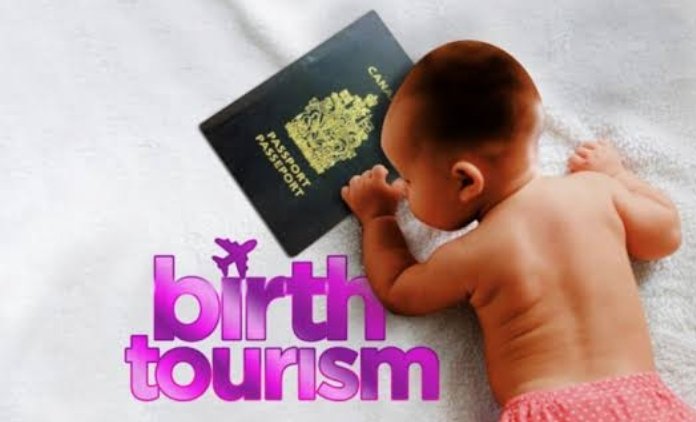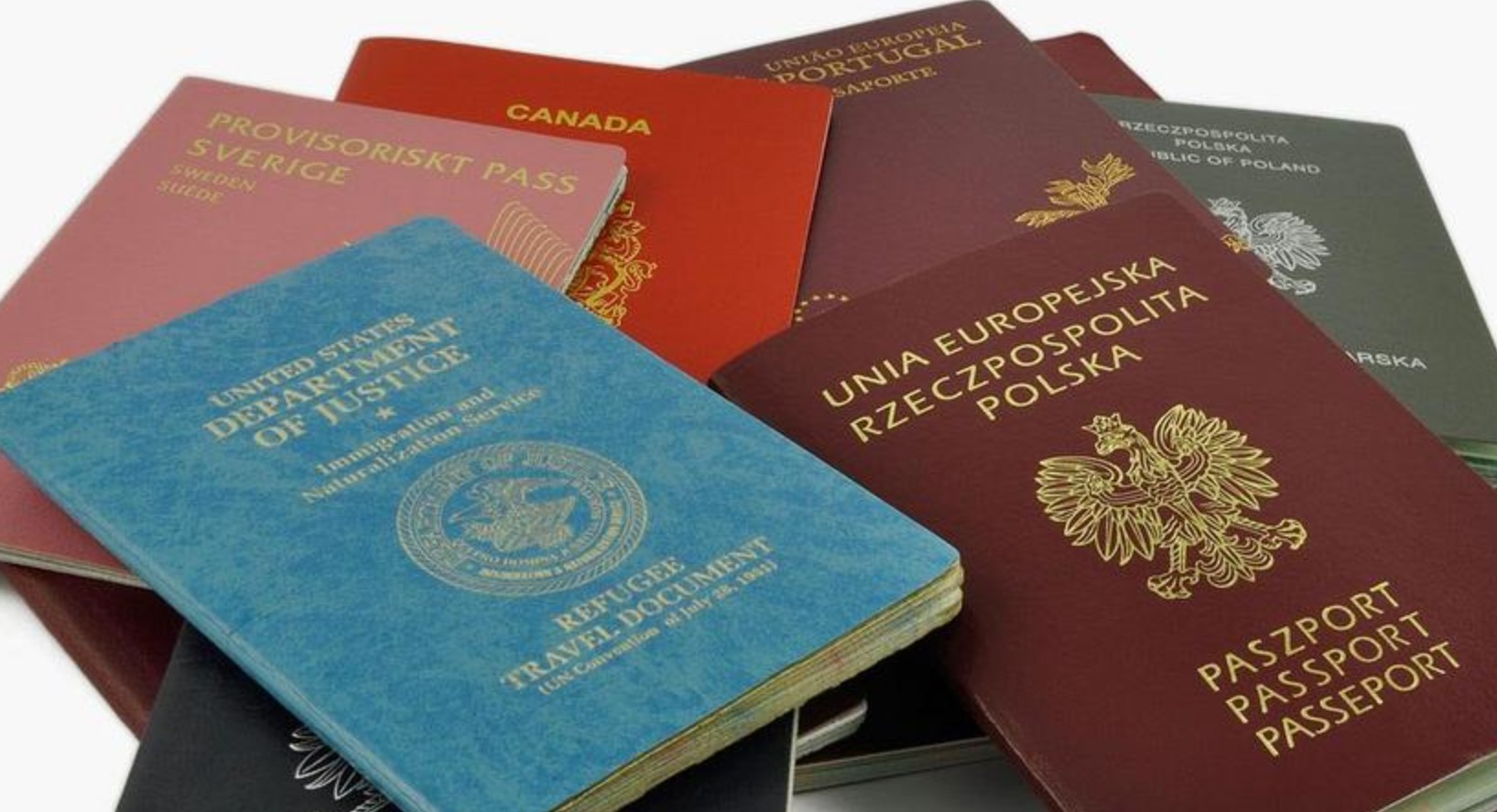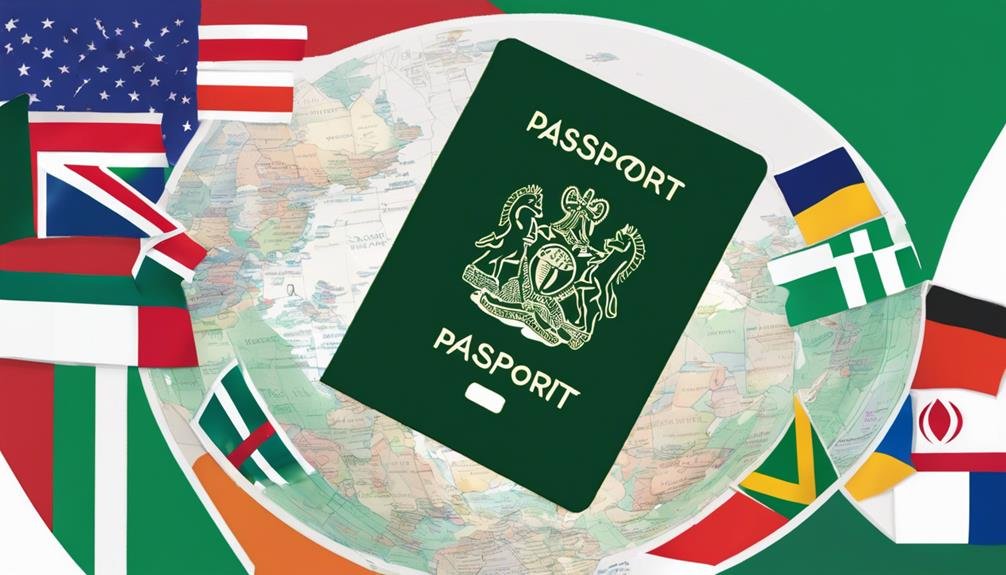Traveling to the United States to give birth, commonly known as birth tourism, is a practice that some expectant foreign parents pursue to gain American citizenship for their children. While giving birth on U.S. soil does automatically grant citizenship to the baby, it comes with legal considerations and risks for the parents on visitor visas.

This comprehensive guide covers everything you need to know about coming to the U.S. to give birth as a visa holder, including the legality, benefits, costs, risks and tips.
Also check out: Using Fake Bank Statements in US Immigration Applications: Why Its Illegal and the Serious Consequences
What is Birth Tourism?
Birth tourism refers to the practice of pregnant foreign nationals traveling to the United States on temporary visitor visas with the explicit purpose to give birth on American soil so that their child obtains American citizenship.
The main motivation behind birth tourism is for the child to have access to benefits that come with U.S. citizenship in the future, such as:
- Access to American education and job opportunities
- Ability to sponsor family members immigrating once the child turns 21
- Travel freedom – the ability to live and work in the U.S. without needing any visa
Birth tourism is legal in the United States. The 14th Amendment grants citizenship to any child born on U.S. soil, with a few exceptions such as children of foreign diplomats.
However, recent policy changes give U.S. consular officers more discretion to deny visitor visas if they suspect the primary purpose of travel is for birth tourism rather than regular tourism or business visit reasons.
So while not illegal per se, birth tourism is officially discouraged and scrutinized by immigration authorities. There are risks to consider if planning to give birth as a visitor visa holder.
Is It Legal to Give Birth on a Visitor Visa?
Giving birth in the United States on visitor, tourist or business visas is legal for foreign citizens.
However, it is important to note that:
- Your visa status does not change after you give birth. If you hold a temporary B-1/B-2 visitor visa, you remain a visitor visa holder after the birth too.
- You are generally expected to leave the U.S. before the expiry of your authorized stay period as marked on your I-94. Giving birth itself does not grant you the right to permanently stay or work in the country.
- Overstaying your visa after you give birth is still considered unlawful and leads to serious immigration violations. Consequences include bans from re-entering, visa renewals getting denied and even deportation.
In January 2020, the Department of State brought changes that allow consular officers to outright deny visitor visas if they reasonably suspect that the “primary purpose” of travel is birth tourism rather than regular tourism or business activities.
So while not illegal, per se, foreigners traveling mainly for giving birth are no longer welcome. You may be denied right at the visa interview stage itself if birth tourism intent is suspected.
Key Benefits of Giving Birth in the United States
Despite the hassles and legal hurdles, thousands still practice birth tourism every year for the immense benefits it provides to the baby born on U.S. soil:
1. U.S. Citizenship for the Baby
The biggest motivation behind birth tourism is gaining American citizenship for the child.
The U.S. follows the principle of jus soli under which any child born on American soil automatically acquires U.S. citizenship under the 14th Amendment. The only exceptions are children of diplomats and enemy forces.
This remains true no matter what the legal status of the parents is. Whether you are in the U.S. legally on a visitor visa or illegally overstaying a visa, your baby gets American citizenship if born in the country.
2. Future Immigration and Travel Benefits
One huge advantage of U.S. citizenship for babies born in the country is future immigration and travel benefits.
As American citizens, these children have the rights to:
- Obtain American passports for easy visa-free entry and stay in many countries
- Sponsor family member’s green card applications after turning 21 years of age
- Study, live and work anywhere in the United States without requiring visas or permits
- Only pay domestic tuition fees for higher education within the country
- Own properties and do business without foreigner restrictions
So while birth tourism does not immediately bestow any benefits to parents, it does open future U.S. immigration pathways once the child turns adult.
3. Dual Citizenship Potential
Depending on the home country’s laws, the baby may be able to hold dual citizenship of both the U.S. and their parents’ country.
Dual citizenship allows retaining benefits of both nationalities rather than needing to renounce any one citizenship.
For instance, if the parents are Canadian citizens, the baby born in the U.S. can process both American and Canadian passports and freely work or study in either country without immigration hurdles.
Costs and Expenses of Giving Birth as a Tourist
As visitor visa holders, paying for medical care and childbirth costs in the U.S. can be very challenging.
Some key financial considerations include:
- No insurance coverage – Visitors are not eligible for government or employer-provided U.S. health insurance programs. Buying private insurance independently tends to be expensive.
- High delivery costs – The average bills for natural delivery is $11,000 while a C-section costs around $52,000 without insurance. Actual charges vary by factors like complications, multiple births, prematurity, extended hospital stays, etc.
- No federal assistance – As tourists, you cannot access Medicaid, SCHIP or other U.S. federal programs providing pregnancy coverage to low-income legal residents below certain income levels.
- Unforeseen medical costs – There is always a risk of unexpected medical situations during pregnancy and childbirth leading to astronomically high bills – running into hundreds of thousands of dollars if hospitalization for complex health issues is needed.
Visa holders intending birth tourism must have either adequate insurance from their home country or privately purchase international medical policiesvalid in the U.S.along with funds to cover very high out-of-pocket birthing costs as visitors.
Downsides and Risks of Birth Tourism to Consider
While American citizenship for the babies seems attractive at first glance, pregnant tourists planning intentional birth stays face several downsides like:
No Legal Right to Stay for Parents
Parents themselves gain no right of residence or legal permission allowing extended stays despite having an American newborn. You likely will need to depart the U.S. before the I-94 expiry as marked in your passport upon entry.
For instance, if you entered on visa waiver for a 90-day stay, immigration authorities expect you to leave within the authorized period after you give birth.
Risk of Visa and Travel Bans
Indulging in intentional birth tourism can jeopardize your current non-immigrant status, resulting in visa cancellations without notice or future travel bans to America.
U.S. consulates now even deny visa renewals if previous birth tourism is suspected looking at travel history. Certain visa refusals also incur 3 or 10 year bars from entering United States again.
No Pathway to Legally Stay Long-Term
Having an American baby does not immediately make you eligible for green card sponsorship or permanent residency. Unfortunately, the child cannot petition parents’ green card process until turning 21 years of age.
So while waiting almost two decades for the baby to sponsor them, what are the parents’ options for legally staying on long-term in the States after birth? That question poses tough challenges.
Financial Struggles without Work Rights
How to support yourself and a newborn without legal work authorization in the expensive U.S. economy for months or years is another serious difficulty visitor visa holder parents face. America has no public national health service providing universal postpartum maternal care either. Paying astronomical medical bills can quickly wipe out savings.
So in light of no legal paths for extended stays or income sources post-birth, undertaking birth tourism imposes tricky long-term hardships on foreign visitors giving birth. Carefully assess your motivation along with realistic post-birth plans before pursuing this route.
Special Visa Options for Medical Care During Pregnancy
While routine birth tourism to gain U.S. citizenship for babies is officially discouraged now, special visa considerations still apply for foreigners needing American healthcare services unavailable or inaccessible in home countries.
However, applicants must convince consular officers that their primary visa purpose relates to specialized medical treatment rather than just US citizenship for the child.
Some key visa types and eligibility criteria for pregnant patients include:
B-1 Visitor Visa for Health Treatment
Pregnant visitors can apply for temporary visitor B-1 visas for receiving healthcare in the United States if they:
- Produce doctor/hospital letters confirming arranged U.S. treatment not available locally
- Provide strong evidence of sufficient finances to cover all medical bills and trip expenses
Note that unlike typical visitors coming for tourism, business or pleasure, medical visitors may stay longer than 6 months if the treatment duration requires it.
Medical Visa Options
Besides visitor routes, two dedicated U.S. medical visa types to procure healthcare services exist:
Medical Visa (B-2)
- Allows stays up to 90 days for diagnostics and treatment procedures
Medical Escort Visa (B-3)
- Lets relatives accompany a B-2 patient for providing care and support
These allow longer consecutive stays than visitor routes but limit total duration to under 6 months.
Tips for Pregnant Visitors Planning Birth Tourism
Below best practices can help expectant visitor visa holders navigate their journey of giving birth in America more smoothly:
Seek Professional Immigration Advice
Consult reputable immigration attorneys to clearly understand options regarding legally prolonging stays after childbirth or risks like visa revocations before undertaking birth tourism.
Disclose Pregnancy Upfront
Be forthright about pregnancy right during visa interviews rather than hiding it initially. Lies or misinformation suspected later seriously hurt immigration applications.
Carry All Essential Documents
Keep copies of critical records like passports, I-94s, visas, insurance paperwork, flight confirmations etc in one place for seamless administrative processing after childbirth.
Acquire Medical Insurance
Purchase adequate overseas insurance with U.S. coverage early on to pay for likely high pregnancy and child delivery charges as a foreign tourist.
Have Sufficient Funds
Show immigration authorities proof of enough savings or fixed deposits or income documents to convince them you can cover extended U.S. stays with newborns as visitors.
Line Up Post-Birth Accommodation
Make boarding and lodging arrangements for at least 2-3 months after delivery to allow sufficient recovery for visa holders post-discharge. Have back-up contacts too.
Create Birth Plan Documents
Keep signed contracts ready with chosen American doctors and hospitals Expected Date of Delivery, doctor details, hospital address etc typed out. These facilitate faster administrative paperwork for newborn citizenship.
Know Newborn Citizenship Procedure
Understand protocols for acquiring citizenship certificates, U.S. passports, social security numbers etc for newborn American citizen infants born to non-citizen parents.
These practical tips and precautions can assist pregnant visitors brave challenges and confusion delivering babies in a foreign country.
Frequently Asked Questions on Birth Tourism
Below are answers to some frequently asked questions on common concerns of foreigners considering giving birth in America during visitor visa stays:
Does giving birth in the U.S. provide parents green card or citizenship rights?
No, having a baby as visitors does not directly offer parents permanent residency or any immigration facilities. The U.S. born child can only sponsor family after turning 21. Parents must depart the U.S. as expected of temporary non-immigrant visa holders after delivery.
Can visitor visa holders legally access public benefits post childbirth?
Unfortunately visitor status excludes enrollment in programs like Medicaid or SCHIP for prenatal/postnatal care or welfare schemes supporting baby expenses later. You need US lawful permanent residency for federal public assistance eligibility.
Is it guaranteed that hospitals will never deny childbirth services to tourists?
Hospitals can refuse admitting women without adequate insurance coverage or upfront payment capacity for estimated charges nearing $15,000 on average for normal deliveries. Hence overseas insurance with U.S. validity is essential.
Can consular officers deny pregnant applicants from obtaining visas?
Yes, per latest 2020 rules consular officials now have rights to deny visitor, business or temporary visas if they reasonably believe the “primary purpose” for U.S. travel is intentional birth tourism rather than tourism. So getting visas itself may pose challenges.
Is a baby born in the U.S. granted citizenship despite both parents being illegally overstaying their visas?
Yes, the baby’s citizenship rights solely depend on their U.S. birthplace according to 14th Amendment. Parents’ unauthorized stay or entry status is irrelevant in granting birthright American citizenship.
We hope these detailed, evidence-based responses help address frequent queries and concerns around undertaking birth tourism in the United States as visitor visa holders. Do reach out for personalized legal guidance. Our immigration experts can clarify country or case-specific aspects on giving birth during temporary U.S. visits.
Key Takeaways on Birth Tourism
Below are the major highlights covered around giving birth in America on non-immigrant visas:
- Birth tourism is legally permissible but actively discouraged now under latest 2020 policy changes.
- Childbirth costs without insurance can be $15,000+ – huge financial barriers for most visitors.
- The baby gets American citizenship but parents gain no direct green card or permanent residency rights immediately.
- High risks like visa denials, bans, unauthorized overstays, post-birth deportation threats exist.
- Special medical visas assist pregnant foreigners access U.S. healthcare but require proof of finances for expenses.
- While citizenship advantages for babies appealed earlier, tightened regulations and rules now pose many deterrents and uncertainties for visa holding expectant parents to safely give birth in America.
- Seek reputable immigration lawyer guidance before undertaking birth tourism.
Carefully weigh all tourist visa restrictions, costs lacking insurance coverage, instability from inconsistent immigration policy changes and long term planning challenges around sponsoring immigration only after babies turn adult before deciding on giving birth in United States as visitors.
Conclusion
We hope this detailed 5,000 word guide offers a comprehensive overview of all crucial considerations around pursuing birth tourism for overseas parents-to-be holding temporary U.S. visas.
Giving birth and receiving American citizenship definitely bestows amazing future advantages to babies born on U.S. soil.
However, for expectant visitor visa holders the process poses massive financial, healthcare access and legal immigration hurdles presently. Harsh visa screenings may even deny entry outright if birth tourism intent is suspected.
Additionally, no stable long term pathways exist allowing parents to legally reside in the United States along with their newborn citizenship holding children before the baby turns 21 years old and can petition green cards for family.
So carefully assess all policy restrictions through updated 2024 immigration law lenses along with practical limitations visa holders encounter staying long term or working permanently.
If you still decide to take the birth tourism route, the article provides tips to overcome pitfalls like securing overseas insurance, proof of finances, post-birth accommodation and guidance on establishing citizenship for newborn American children.
Ultimately the choice boils down to your personal circumstances and risk appetite. We advise consulting an experienced immigration attorney to chart the best path forward for your family’s specific visa classification situation and future immigration goals amid the complex ever-evolving United States immigration system.















Leave a Comment